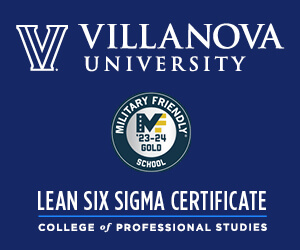Joining the military gives you more than just the pride of service, it also provides multiple educational opportunities to bolster your chances of a successful transition into the civilian world. When you are considering a college degree or trade school certification, you should first sit down with an education and employment counselor to make an informed decision on which path fits your goals.
Listed below are a few important factors to consider when you are making your decision:
-
Cost of certificate and degree programs
- The average trade school degrees cost approximately $33k
- The average bachelor’s program cost approximately $127k
-
Potential for student loan debt
- The average trade school student loan debt is around $10k
- The average student loan debt for a degree is around $40k
-
Length of the program
- Trade school degree programs: 2 years
- Bachelor programs: 4 years
The Economic Policy Institute recently released a report stating college graduates under the age of 25 are showing an 8.5% unemployment rate and a 16.8% underemployment rate, nearly double what they were in 2007 — and the projected growth will be an additional 5% increase by the end of 2020. A college degree is a career investment requiring a considerable amount of time and money, but a large portion of students are unable to find desirable employment upon graduation. They are also seeing negative returns on their investment, in part because the vast array of student loan options makes it challenging to make the right decision.
TIP: This is where a financial counselor can be most useful in helping to navigate the choices in an objective manner.
In some instances, those serving in the National Guard or reserves look to obtain a degree to pursue a commissioning, without considering life after the military obligation ends. Some choose specific fields that align with their future, but others choose the online program that offers the most credits to get to the degree done in the shortest time. Then once it’s time to separate from service, service members will struggle with the transition and eventually end up frustrated with the entire process.
My advice would be to look into your future and try to imagine where you want to work and the types of roles you would be interested in. Map out a plan or two, and develop a clear path on how to achieve your objectives.
Why is that? While having a degree will ultimately trend towards a higher earnings potential, this is not always the case. Choosing the more non-traditional route of a trade school can sometimes offer significant dividends a lot sooner with a higher profit margin.
Career colleges, technical schools, trade schools and vocational schools are all essentially the same thing; these terms can be used interchangeably. These schools teach skills and abilities that are directly related to specific jobs, whereas traditional colleges tend to offer broader and more general education programs. Realistically, the trade schools are preparing you for a specific career in a shorter period of time.
While going to college is a great experience, what you do with that degree is up to you. The Georgetown Center for Education and the Workforce found that in 2020, there will be 24 million job openings from newly-created jobs and 31 million openings due to baby boom retirements. Thirty-five percent of these jobs will require a bachelor’s degree, while 36% will only require a high school diploma. Moving up the ladder in a company will require a higher education level, but not everyone is meant for the corporate world. One of the hardest things to do is to project where your career will ultimately end up in.
- Do some research on the career fields you are interested in and find out the most affordable way to get to your end goal.
- Reach out to your mentors that have made the transition and learn about their triumphs and mistakes.
- Search for people on LinkedIn that are in roles you want to be in; those professionals have a demonstrated path showing how they moved up in a company, or how they transitioned through their careers.
Take advantage of what the military offers for continuing education, but also lean on the experts in education and employment who can assist you in maximizing career results with informed decisions.
Read comments








































